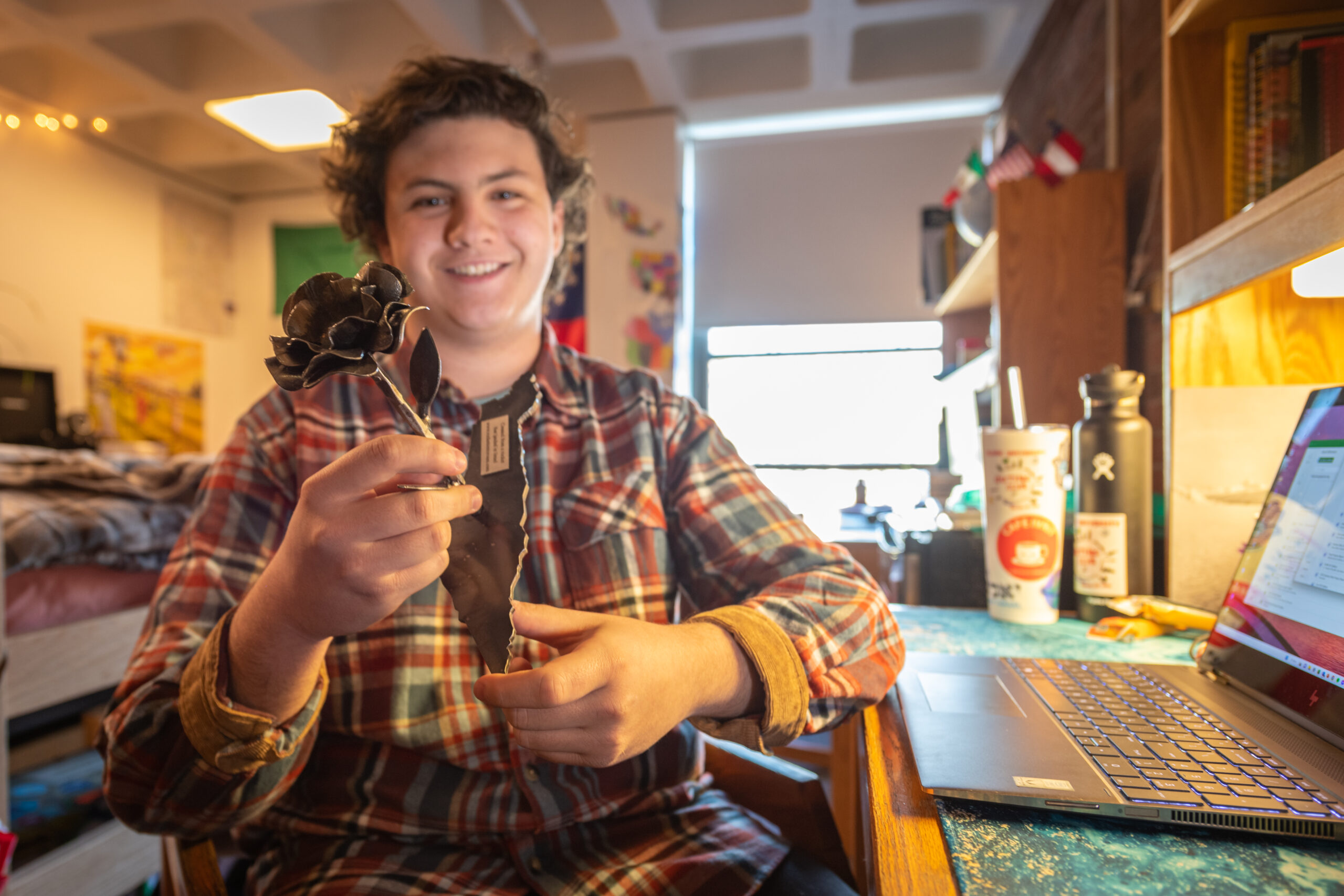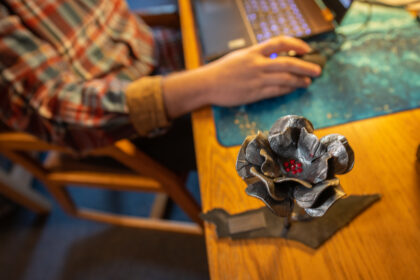‘The beauty of this is the connection’

When Ethan Quinn ’25 traveled to Israel last year for a Birthright trip, he visited a farming area known as the Salad Trail. There, he met some of the artists behind Rockets into Roses, a project that turns metal from missiles fired into the country into beautiful rose sculptures or jewelry. It was a first experience for him and something very unique to Israel.
So, when Clark’s Hillel created a new Israeli art lending library in the fall, Quinn was surprised to see a rose sculpture he recognized from his trip.
“To me, the beauty of this is the connection,” says Jeff Narod, the executive director of Clark’s Hillel. “The art Ethan saw being made in Israel ended up as part of our collection. To me, that’s quite astonishing.”
Quinn was among the first to reserve a piece from the collection. His residence hall is now adorned with a metal rose, a warm reminder of his travels.
The Israeli art lending library is a gift to Clark from the counsel general of Israel to New England. Through Hillel, Clark students, faculty, and staff can borrow works from Israeli artists and keep them in their residence hall or office for the academic year. Just a $5 deposit is required to borrow the art. Clark’s collection currently includes 25 pieces, eight of which have been reserved thus far.
When the COVID-19 pandemic halted birthright trips, art lending libraries became a resource to maintain a connection to Israel for college Hillel groups.

“The connection to Israel is very important to Jewish students,” says Narod. “Israel is a very dynamic and complex country. You get this real blending of different backgrounds, so the beauty of the art program is that the art is chosen from a very diverse group of people and topics. Some of the art is about culture in Israel, some is about the history of Israel, some is about the Bible, some is about art itself and modern life.”
Clark’s collection includes an image of cacti by Miriam-Feyga Bunimovich, a landscape and studio photographer; a hand-painted and embroidered fabric wall hanging of four women by Yad LaKashish; and a self-portrait collage by Naomi Shalev. The pieces are from both budding and established artists and are generally 5 to 10 years old.
“My hope is down the line we’ll spend more time getting to know who the artists are, getting to know their stories,” says Narod.
Arielle Silver ’25 and Jadyn Becker ’25 are interns who coordinate the art lending. Anyone interested in reserving a piece can browse online, put down the $5 deposit, and arrange a pick-up time.
“Most students decorate their room with whatever they can find, whether it be a poster, tapestry, or flag. Having something unique like this is really exciting,” says Becker, a psychology major.
“This is your home away from home,” adds Silver, a fellow psychology major. “It’s nice to decorate your room in a way that feels safe. This art is made with love. There’s a lot of meaning behind these pieces.”
Hillel members hope the Clark community will see the program as a resource open to everyone on campus.
“It’s about community. We love coming together and getting to know each other,” says Silver. “Having this piece of Israeli artwork allows people to learn more about different cultures and feel more connected to people on campus.”
Northeastern University and UMass Amherst also have Israeli art lending libraries. Narod hopes the libraries can eventually trade pieces so students, faculty, and staff can choose from a larger selection of work.
Clark students, staff, and faculty interested in borrowing art can view the selection online and email Hillelclarku@gmail.com with any questions.


